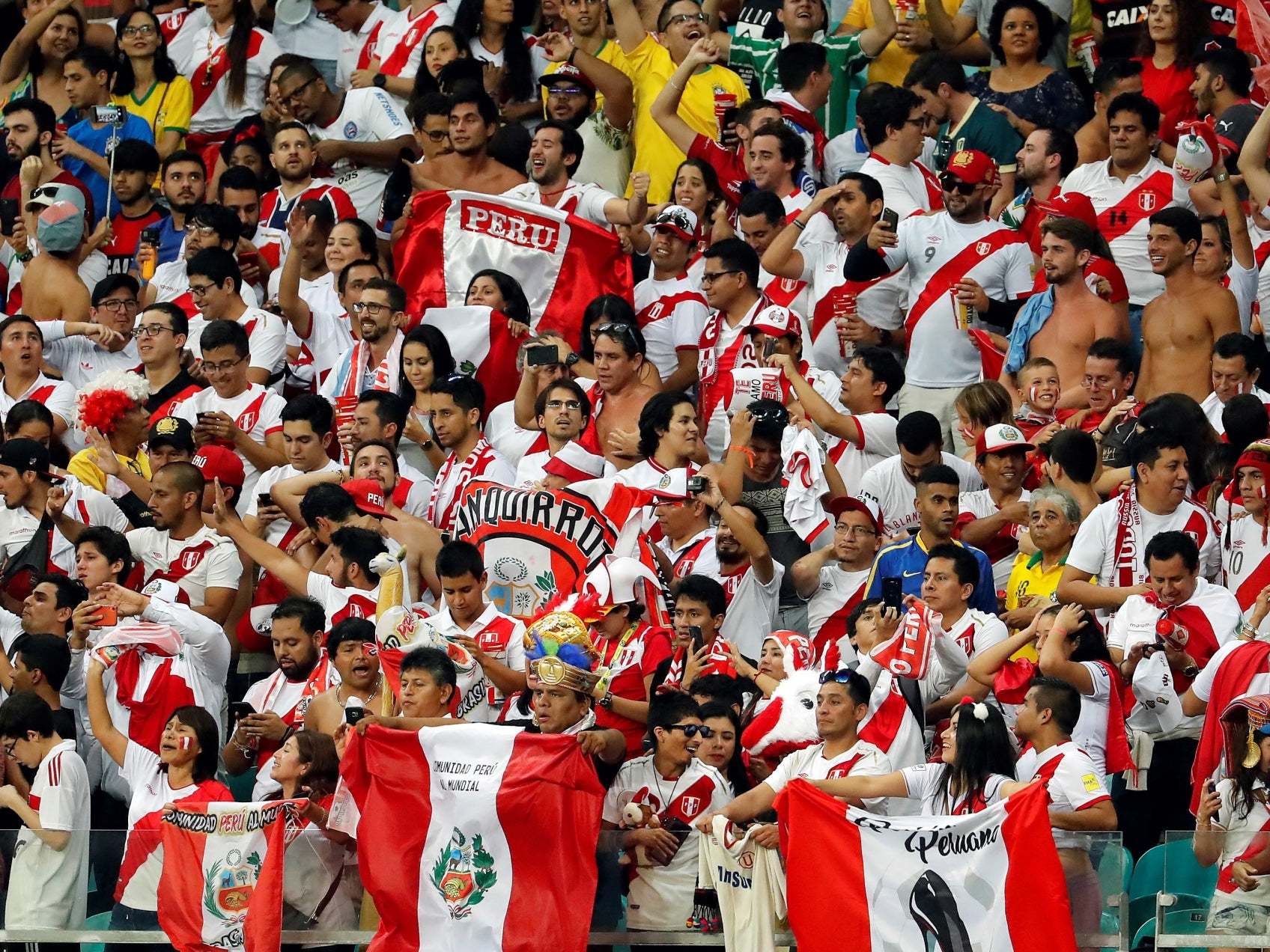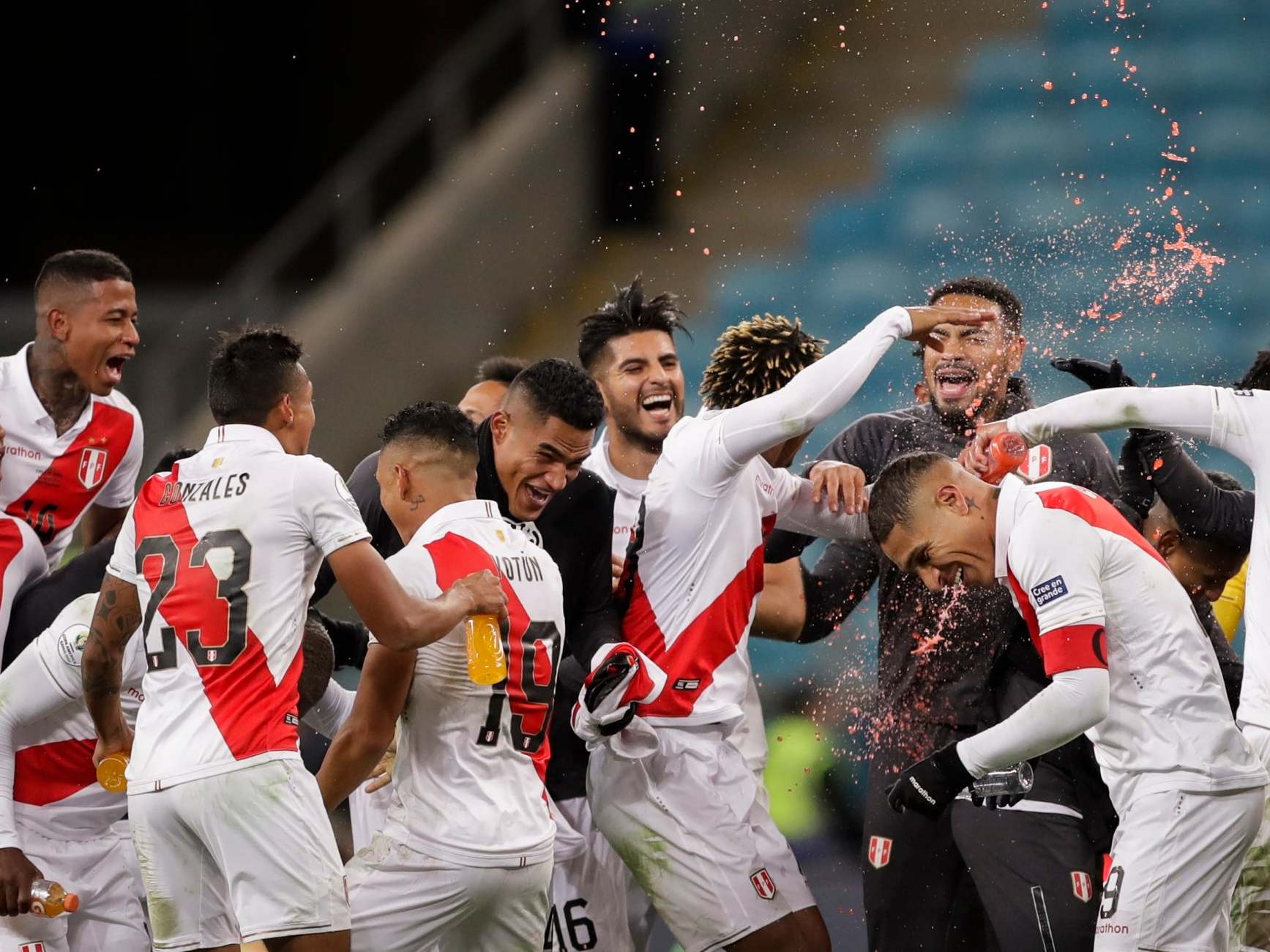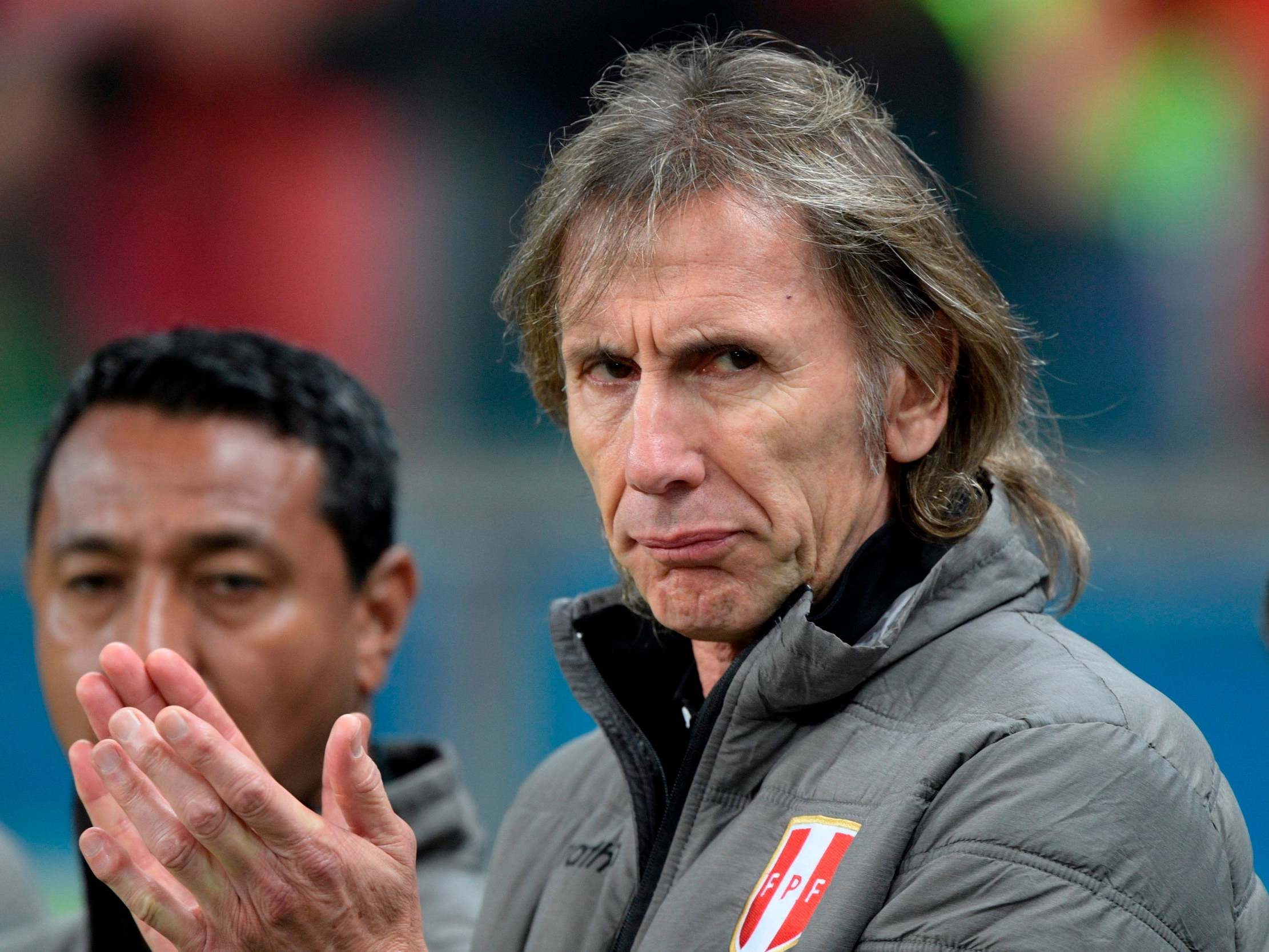Copa America 2019: Peru sing to Ricardo Gareca’s tune to overwhelm Chile and stand on brink of immortality
Chile 0-3 Peru: Los Incas have now reached their first Copa America final in 44 years where hosts Brazil await

Your support helps us to tell the story
From reproductive rights to climate change to Big Tech, The Independent is on the ground when the story is developing. Whether it's investigating the financials of Elon Musk's pro-Trump PAC or producing our latest documentary, 'The A Word', which shines a light on the American women fighting for reproductive rights, we know how important it is to parse out the facts from the messaging.
At such a critical moment in US history, we need reporters on the ground. Your donation allows us to keep sending journalists to speak to both sides of the story.
The Independent is trusted by Americans across the entire political spectrum. And unlike many other quality news outlets, we choose not to lock Americans out of our reporting and analysis with paywalls. We believe quality journalism should be available to everyone, paid for by those who can afford it.
Your support makes all the difference.“How could I fail to love you?” The question rang out on the concourse, to a thumping drum beat, warming the heart against the cold.
Football chants come in all shapes and sizes, but the tone in this neck of the woods often tends towards boorishness. Nuance and melody are often sacrificed to facilitate cheap point-scoring (see Brazil’s insufferable “Mil gols” refrain, which is about as subtle as a punch to the face). This, though? This was romantic.
“You’re my dear Peru, the blessed country that created me,” they sung, fingers pointing to the stars, sashed shirts stretched over puffer jackets. “How could I fail to love you?”
The chant is a touching, wide-eyed display of national pride. But before kick-off at the Arena do Grêmio, it wasn’t quite as rhetorical as usual. For while Peru had managed to plot a course to the Copa América semi-finals, they had not, in truth, provided their fans with a great deal to get excited about.
Two goalless draws, a 5-0 defeat to Brazil and an obligatory win over Bolivia: good enough, but hardly the stuff of dreams. While they had snuck past Colombia on penalties, few expected them to get much change out of a grizzled Chile side. Little matter that they had elbowed La Roja aside in the race to reach Russia 2018; the fire that burned through the latter stages of that qualifying campaign appeared to be slowly petering out.
Well so much for that notion. Peru didn’t just rediscover some of the old swagger last night; they tapped into a whole bursting vein of it. From the moment that Edson ‘Big Ears’ Flores guided home an early opener, the underdogs were rampant. The intricate, brave passing combinations clicked like before. Attacks unfurled with brutal momentum, like waves over a reef.
Chile could not cope, their discombobulation captured by goalkeeper Gabriel Arias’ decision to chase André Carrillo towards the corner flag just before half-time. “He went butterfly hunting,” was the poetic take of the local ESPN commentator, but Arias returned home with an empty net in every possible sense: Carrillo crossed for Yoshimar Yotún, who kept his cool to volley home.
By the time Paolo Guerrero put gloss on the result late on, there was already a crackling excitement in the air. On Sunday, Peru will play their first Copa América final in 44 years. It will be only the third in their entire history.

That is a massive achievement, but perhaps we shouldn’t be overly surprised. This team, after all, has been laughing in the face of received wisdom for a while now. They made the semi-finals of the 2015 Copa América, then finished above Brazil in the group stage of the 2016 edition. Last summer they were at the World Cup for the first time since 1982. They have since pushed the Netherlands and Germany hard in friendlies. After decades in the doldrums, Peru are putting themselves firmly on the map.
Much of the credit must go to coach Ricardo Gareca. A collector of cool nicknames (‘The Tiger’, ‘Slim’) with the wispy, gaunt look of a retired prog-rock keyboardist, he is perhaps an unlikely hero: he once cost La Blanquirroja a place at the World Cup by scoring against them for Argentina in a dramatic 1985 qualifier. Yet it is testament to his work since taking the reins four years ago that Peruvians have been able to forgive him for that and embrace his methods wholeheartedly.
There have been tactical tweaks, but Gareca’s main achievement has been to change the mentality of the side. For years, Peru were talented lightweights, nurturing an all-too-comfortable inferiority complex at the top level. They harked back to the achievements of the Teófilo Cubillas era but rarely seemed to have the conviction necessary to emulate them.

That is no longer the case. Gareca took on a young, relatively inexperienced squad and imbued it with belief, favouring the carrot over the stick. “He’s more of a friend than a coach,” Yotún said in 2017. “It didn’t take him long to get us believing again, both as individuals and as a group. He’s given us renewed confidence.”
That much is plain when you look at the players who have come out of their shells under his guidance. Flighty playmaker Christian Cueva saves his best football for the national team, and the same is true of Carillo and others. Renato Tapia and Luis Abram were fast-tracked into the senior set-up and are now key members of the side. The Peru jersey seems to confer superhuman powers upon right-back Luis Advíncula and goalkeeper Pedro Gallese.

There is also a durability to the squad, as evidenced by the way Peru were able to grit their teeth and power through when Guerrero – the one big-ticket star and the focal point in attack – was sidelined by a drugs case that rumbled on interminably. They missed him, but they never used his absence as an excuse.
The final will be another psychological hurdle, given the way that things panned out when the sides met in São Paulo last month. But any suggestion that Peru would be happy with second place at this Copa was dispelled by Gareca last night. “We intend to win,” he said. “When you reach a final, you’re only thinking about one thing. That’s the mentality we will have against Brazil. I believe in the guys.”
It won’t be easy, but that kind of nurturing optimism should stand them in good stead. If they play as they did here, they will certainly have a chance – and a chance is sometimes all an underdog needs.
Already, Peru have exceeded every expectation this summer. Now they have the opportunity to achieve immortality. Sash, bang, wallop.
Join our commenting forum
Join thought-provoking conversations, follow other Independent readers and see their replies
Comments